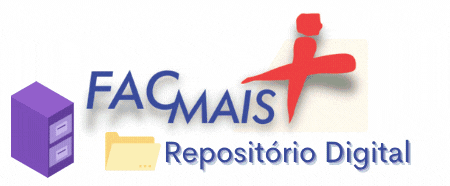Use este identificador para citar ou linkar para este item:
http://65.108.49.104:80/xmlui/handle/123456789/380Registro completo de metadados
| Campo DC | Valor | Idioma |
|---|---|---|
| dc.creator | GOMES, Nádia Rezende | - |
| dc.date.accessioned | 2022-03-23T18:47:41Z | - |
| dc.date.available | 2021-12-09 | - |
| dc.date.available | 2022-03-23T18:47:41Z | - |
| dc.date.issued | 2021-12-09 | - |
| dc.identifier.uri | http://65.108.49.104:80/xmlui/handle/123456789/380 | - |
| dc.description.abstract | Democratic School Management follows the context of participation. It involved the entire school community in a present and active way in decision-making. In this way, this participation contributes to the elaboration and execution of the Pedagogical Political Project and the implementation of pedagogical policies that bring better results in the teaching and learning process. Therefore, this monograph presents itself with the general objective to analyze school management based on the principle of democracy, therefore, understood as democratic management. Some questions are necessary, such as knowing the legal foundations of democratic management and its characteristics, identifying the role of the school manager in the collective work and the pedagogical, political commitment, and, finally, understanding the importance of the participation of the school council in the decision-making processes of school management. It presents a problem: how does this democratic management happen within the school units and the collective participation of the school council in the documents that guide them?. Therefore, the methodology to be used will be bibliographic research, based on scientific research in the field of school management by the prominent authors' LIB NEO (2018), LUCK (2009) (2015), OLIVEIRA, and QUEIROZ (2019) (2020), PARO (2006) (2007) and the official documents that guide democratic management, including the Law of Guidelines and Bases - LDB/96, Pedagogical Political Project - PPP and the National Education Plan - PNE. Thus, it is evident that democratic school management seeks to strengthen the participation of school, family, and society in the teaching and learning, and social process. Therefore, to develop the referred management, the school manager is chosen to carry out work in a participatory democratic way, with autonomy and the development of collective participation. | pt_BR |
| dc.language | por | pt_BR |
| dc.publisher | Faculdade Facmais | pt_BR |
| dc.rights | Acesso Aberto | pt_BR |
| dc.subject | Gestão | pt_BR |
| dc.subject | Democrática | pt_BR |
| dc.subject | Participativa | pt_BR |
| dc.subject | Coletivo | pt_BR |
| dc.subject | Gestor | pt_BR |
| dc.title | GESTÃO ESCOLAR NO ÂMBITO DOS DOCUMENTOS OFICIAIS | pt_BR |
| dc.type | Trabalho de Conclusão de Curso | pt_BR |
| dc.creator.Lattes | http://lattes.cnpq.br | pt_BR |
| dc.contributor.advisor1 | OLIVEIRA, Daniel Júnior de | - |
| dc.contributor.advisor1Lattes | http://lattes.cnpq.br | pt_BR |
| dc.description.resumo | A Gestão Escolar Democrática segue o contexto da participação. Envolvendo toda a comunidade escolar de forma presente e ativa nas tomadas de decisões. Desse modo essa participação contribui na elaboração e execução do Projeto Político Pedagógico e na realização de políticas pedagógicas que tragam melhores resultados no processo de ensino e aprendizado. Portanto, esta monografia se apresenta com o objetivo geral analisar a gestão escolar pautada no princípio da democracia, sendo, então, compreendida como gestão democrática. Algumas indagações são necessárias, tais como: conhecer os fundamentos legais da gestão democrática e suas características, identificar o papel do gestor escolar perante o trabalho coletivo e o comprometimento político-pedagógico e, por fim, compreender a importância da participação do conselho escolar nos processos decisórios da gestão escolar. Apresenta como questão problema: como acontece essa gestão democrática dentro das unidades escolares e a participação coletiva do conselho escolar perante os documentos que as norteiam?. Como metodologia, a ser empregada, serão lidas pesquisas bibliográficas, com base em pesquisas científicas no campo da gestão escolar dos principais autores LIBÂNEO (2018), LUCK (2009) (2015), OLIVEIRA e QUEIROZ (2019) (2020), PARO (2006) (2007) e os documentos oficiais que norteiam a gestão democrática, entre eles Lei de Diretrizes e Bases - LDB/96, Projeto Político Pedagógico - PPP e o Plano Nacional de Educação - PNE. Assim, evidencia-se que a gestão escolar democrática busca fortalecer a participação da escola, família e sociedade no processo de ensino e aprendizado e social. Para que seja desenvolvida a referida gestão é escolhido o gestor escolar para realizar um trabalho de forma democrática participativa, com autonomia e o desenvolvimento da participação coletiva. | pt_BR |
| dc.publisher.country | Brasil | pt_BR |
| dc.publisher.department | Departamento 1 | pt_BR |
| dc.publisher.initials | FACMAIS | pt_BR |
| dc.subject.cnpq | CNPQ::CIENCIAS HUMANAS::EDUCACAO | pt_BR |
| Aparece nas coleções: | Trabalho de Conclusão de curso | |
Arquivos associados a este item:
| Arquivo | Descrição | Tamanho | Formato | |
|---|---|---|---|---|
| TCC NADIA aprovado-convertido-compactado.pdf | 200.31 kB | Adobe PDF | Visualizar/Abrir |
Os itens no repositório estão protegidos por copyright, com todos os direitos reservados, salvo quando é indicado o contrário.
